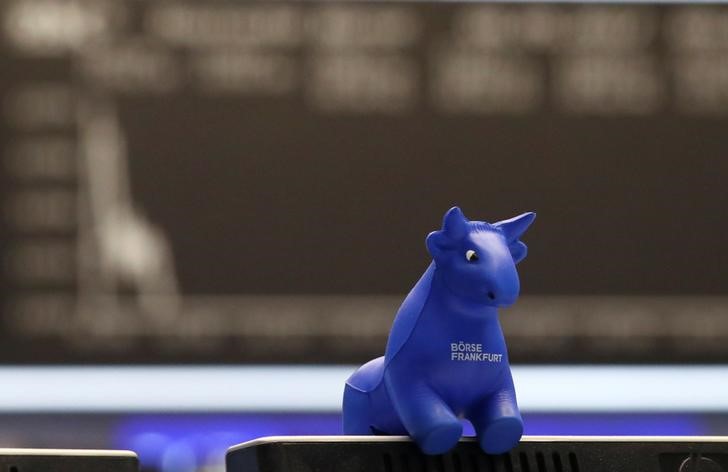This post was originally published on this site
https://i-invdn-com.investing.com/news/LYNXMPEE610B5_M.jpg
Investing.com – European stock markets traded mixed on Wednesday, hovering around the flatline with investors continuing to digest the risks associated with the Omicron Covid-19 variant heading into year-end.
At 3:45 AM ET (0845 GMT), the DAX in Germany traded 0.1% lower, the CAC 40 in France rose 0.1% while the U.K.’s FTSE 100 dropped 0.3%.
Policymakers are scrambling hard to try and contain the potential damage from the new variant, stepping up vaccination programs while reimposing partial or full lockdowns or other social distancing measures.
There was some good news from the U.K., one of the countries hardest hit by the Omicron variant so far. Prime Minister Boris Johnson said he would not introduce new curbs in England before Christmas and Chancellor Rishi Sunak announced 1 billion pounds ($1.3 billion) of extra support for businesses hit hardest by the new surge.
However, data released earlier Wednesday showed Britain’s economy grew more slowly than previously thought in the July-September period, even before the Omicron variant threatened more economic damage.
U.K. gross domestic product increased by 1.1% in the third quarter, weaker than a preliminary estimate of growth of 1.3%.
Meanwhile in France, there was the latest reminder of the price pressures squeezing the economy, as producer prices rose 3.5% in November alone. That is due in large part to a ferocious rise in whosesale energy prices which has continued into this month due to shortages of natural gas and outages at French nuclear plants. French baseload power for February is now quoted at over 1,000 euros per megawatt-hour, around 20 times the average price seen in the last decade.
Russia increased the political pressure on the EU to approve the start of gas flows through the Nord Stream 2 pipeline. President Vladimir Putin spoke on Tuesday of a “military-technical” response to supposed threats to the country from alleged NATO influence in Ukraine.
It’s debatable how long stock markets can hold up after Hans Kluge, the World Health Organization’s European head, warned on Tuesday of “another storm coming … pushing already stretched health systems further to the brink.”
In corporate news, AP Moeller-Maersk (CSE:MAERSKb) stock rose 0.5% after the Danish shipping giant agreed to buy Hong Kong-based LF Logistics for $3.6 billion in an all-cash deal, as it seeks to expand beyond its core ocean freight business.
Delivery Hero (DE:DHER) stock jumped 5.8% after the German food delivery group said it would scale down its Foodpanda operations in Germany and sell the subsidiary’s Japan unit, citing increased competition and labour shortages.
Oil prices stabilized Wednesday, helped by an industry report pointing to another sharp drop in U.S. crude stockpiles but with traders reluctant to push the market too much higher given the ongoing concerns over the rapid spread of Omicron cases globally.
The American Petroleum Institute reported crude stockpiles fell by 3.67 million barrels last week, a larger draw than the 2.63-million-barrel drop expected and much larger than last week’s 815,000-barrel fall. If confirmed by government data later on Wednesday, it would be a fourth weekly draw.
By 3:45 AM ET, U.S. crude futures traded 0.4% higher at $71.39 a barrel, while the Brent contract rose 0.2% to $74.13.
Additionally, gold futures fell 0.1% to $1,786.25/oz, while EUR/USD traded 0.1% lower at 1.1270.

